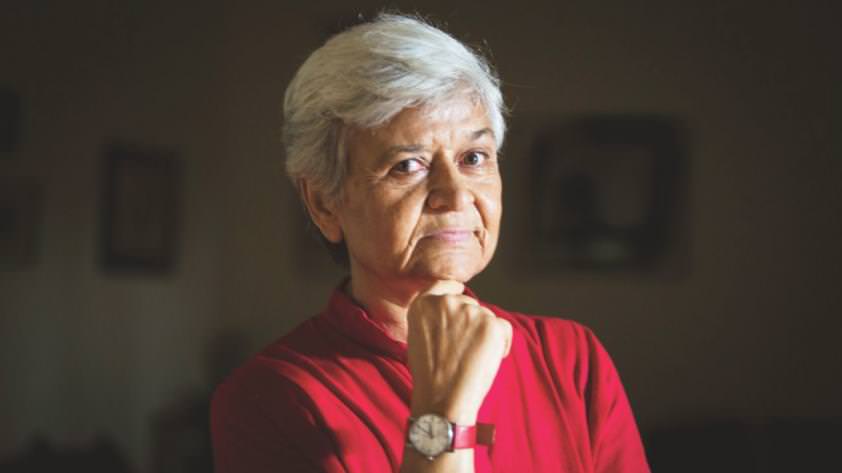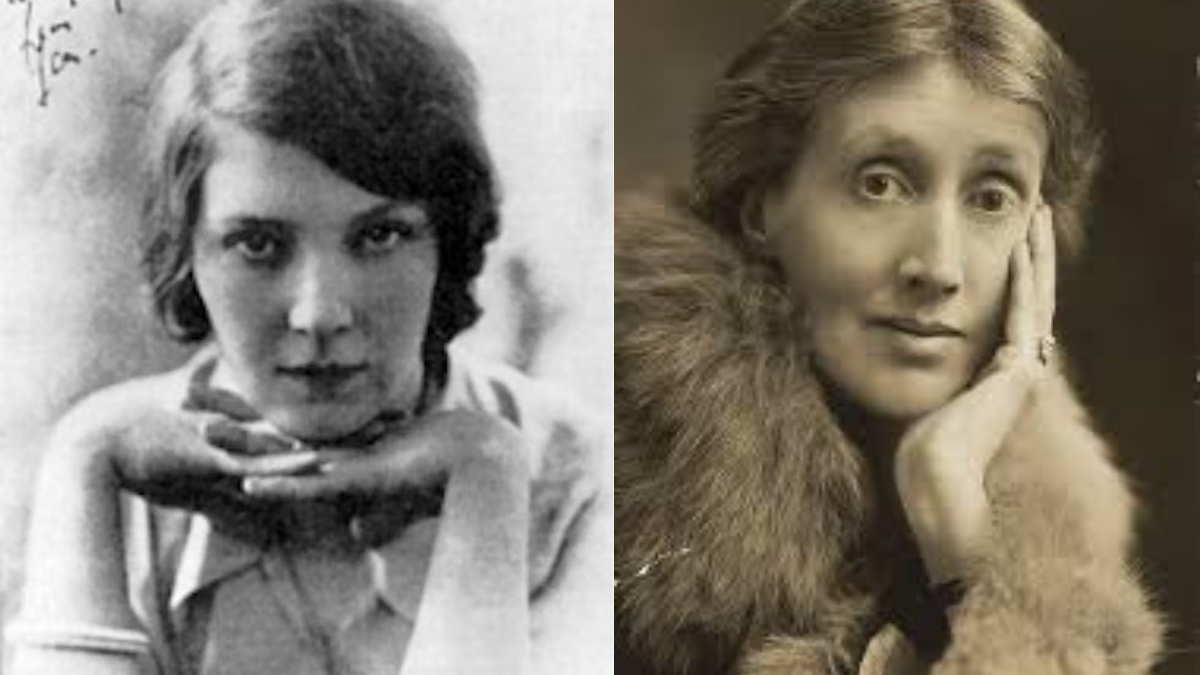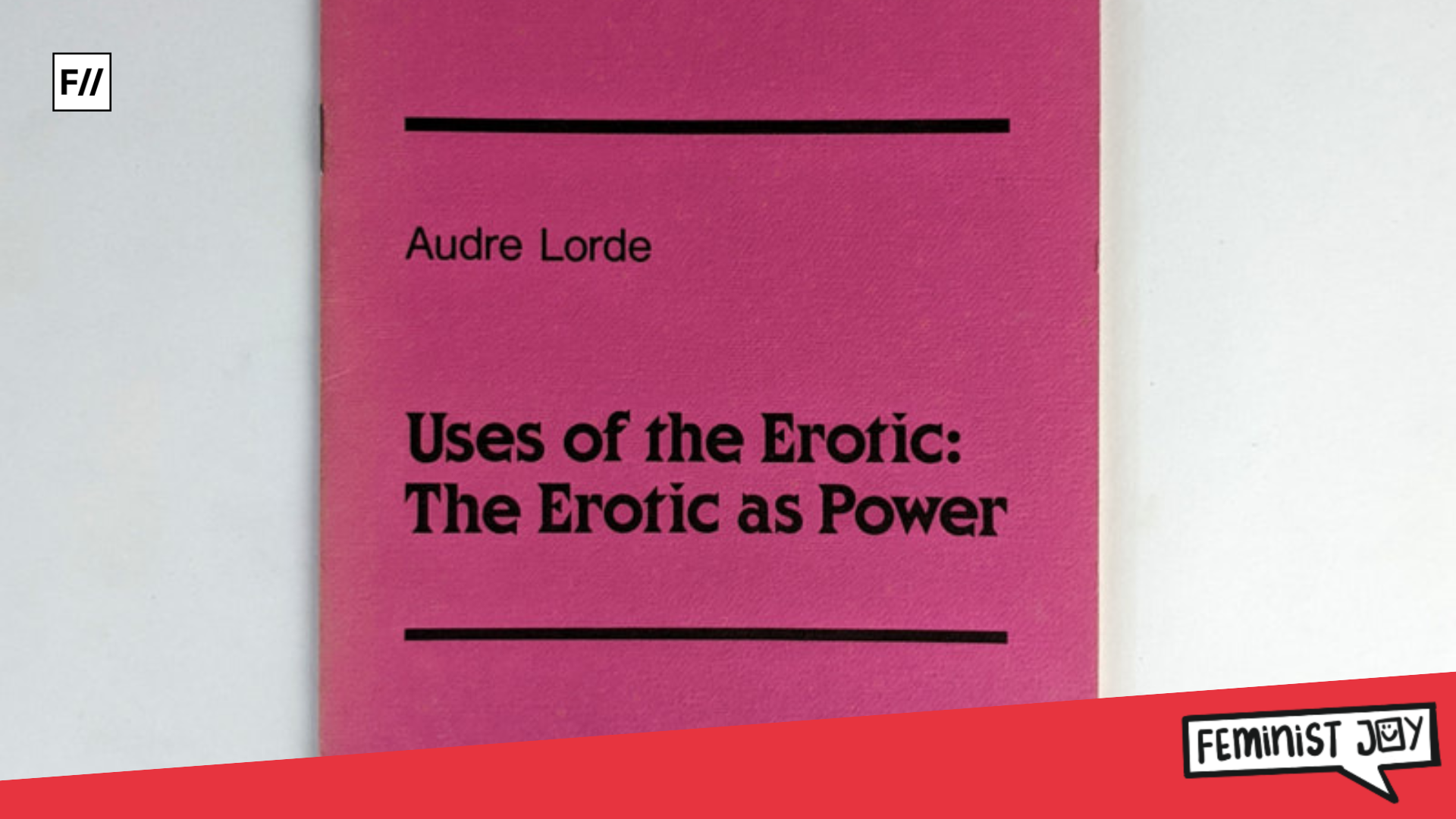In an interview earlier this year Kamla Bhasin, feminist activist, writer and social worker reflected on her body of work spanning over 35 years and spoke about feminism in India and Pakistan. The interview was organized by Eqbal Ahmad Centre for Public Education in Pakistan. Her informal and conversational interview with the host, Alia Amirali is a delight to watch.
The interview starts off with Amirali humorously asking Bhasin if the word ‘Feminism’ is as infamous and feared in India, as it is in Pakistan. Kamla Bhasin replies saying that though the term and the movement has come to be accepted to a certain extent, the fear and infamy around it still remains.
She attributes it to the deconstructive projects of feminism that question everything – from local customs to national policy decisions. She says that questioning capitalist patriarchy is no small feat and that one must never underestimate its discursive powers. Challenging a system that privileges over half of the world’s population is bound to raise opposition.
This sets the tone for the entire discussion to follow where she and Alia Amirali look at how the scenario has changed since Bhasin began working. Bhasin makes some very interesting observations in the interview. She locates women’s oppression in both capitalist patriarchy and religious fundamentalism. She also emphasizes on the role of class in the feminist movement.
questioning capitalist patriarchy is no small feat and that one must never underestimate its discursive powers.
She claims that all large scale and widespread feminist movements have been helmed and sustained by women from the lower classes. Their participation in mass movements have been significantly higher than the middle class. She emphasizes on the role of NGOs in this respect and says that the work that they have done in South Asia, especially Bangladesh, has been exemplary.
In an extended version of the same interview, she talks about how folk songs have been used for feminist awakening among women from poorer economic backgrounds in rural areas, who otherwise could never access the movement or use it as a platform to address their grievances due to the simple fact that the literacy levels among them were painfully low. What Bhasin advocates, is using catchy popular tunes and folk music and rewriting their lyrics to talk about right to education, equal property, sanitation etc.
On being asked about education for the girl child, Bhasin’s core area of interest, she exclaims that even when girls do go to school, they have to face patriarchy on a daily basis – in terms of what they are taught, what is expected of them. Nevertheless, it still guarantees them a certain degree of mobility, access to public space and technology and hence more agency over their lives. She also reflects on how the situation has changed at universities, where both in India and in Pakistan, Gender studies and Women Studies departments have come up and the discipline has strengthened its foothold in mainstream academia.
A very interesting and encouraging response was elicited from her when she was asked to describe the current scenario of women in India. She very crisply responded saying the country housed few of the richest women in the world and also few of the poorest and that there is no possible way in which she could sum up such different experiences of their gender in one sweeping generalized statement. She denied the existence of a stable homogenous category of ‘The Indian Woman’.
even when girls do go to school, they have to face patriarchy on a daily basis – in terms of what they are taught, what is expected of them.
Amirali and Bhasin, together trace the changes in Pakistan since Bhasin’s first visit- presence of a woman president, the establishment of the National Commission for Women and a long drawn struggle for Human Rights Commissions.
The interview ends with an optimistic note where Bhasin says that the equality that the movement is fighting for is codified in law in both, the constitutions of Pakistan and India and in the United Nation’s Universal Declaration of Human Rights. It is up to the lawmakers, courts and people wielding political authority to respect the right that has been bestowed by the constitution and also says that it should be the starting point of any policy making endeavor. She believes that this is a result of a long feminist struggle that preceded it and should be remembered, celebrated and commemorated.
Also Read: A Feminist Review Of Azmaish: The Political Journey Of Two Women
Featured Image Credit: Respect Women
About the author(s)
Sunaina Bose is a theatre enthusiast, pop culture junkie and an Austenmanic. In her free time (also when she’s procrastinating) she loves to take life changing quizzes like ‘What kind of pizza are you’.




